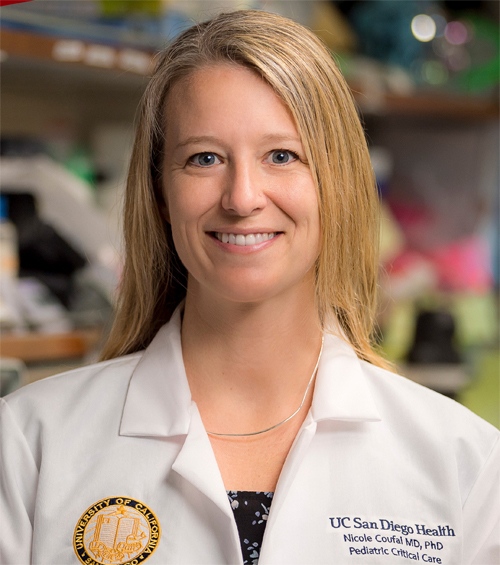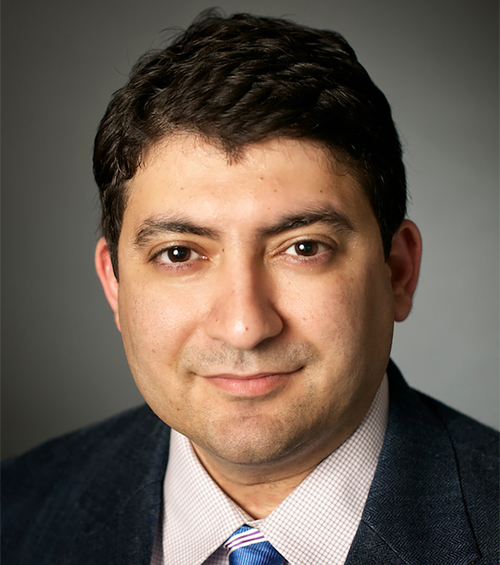Keynote Speakers
MSTP 50th Anniversary: Paul Insel Research Symposium

Nicole Coufal, M.D., Ph.D, is a physician scientist with training in pediatric critical care and a research interest in neuroimmunology. The goal of her lab is to understand the contribution of innate immunity to neurodevelopmental and pediatric neurodegenerative diseases. By understanding the interaction between the brain environment and cellular ontogeny on macrophage function, the lab strives to understand the molecular and cellular mechanisms underlying innate immune dysfunction to ultimately identify novel therapeutic targets in untreatable pediatric diseases. Her lab utilizes a combination of translational, patient-specific pluripotent stem cell and genome-wide approaches to identify cellular mechanisms in common neurodevelopmental and rare pediatric neurodegenerative disorders.

Amir Zarrinpar, MD, PhD, DABOM, AGAF, is a physician-scientist and board-certified gastroenterologist, recognized for his research at the intersection of circadian biology, gut physiology, and the gut microbiome. He has dedicated his career to understanding how these factors interact to contribute to conditions such as obesity, diabetes, steatohepatitis, and other gut-related disorders.
Zarrinpar earned an A.B. degree in Psychology and Biology from Harvard University, followed by an M.D./Ph.D. from UC San Diego. He completed his residency and fellowship at UC San Diego and pursued postdoctoral training in Satchin Panda’s lab at the Salk Institute, where he made groundbreaking contributions to time-restricted feeding and its effects on obesity, diabetes, and the gut microbiome.
Zarrinpar's recent research is focused on better functional characterization of the gut microbiome and how specific microbial functions can alleviate disease. He has made groundbreaking contributions in the field, including a recent publication in the journal Cell, where he and his team demonstrated that genetically engineered native gut bacteria can be used to functionally manipulate the gut microbiome and affect host glucose homeostasis, as well as alleviate hyperglycemia after only a single treatment. The ability to functionally manipulate the gut microbiome using this technique has led to a better understanding of the microbe-host interface and led to research and collaboration into cancer, inflammatory bowel disease, atherosclerosis, as well as multiple other areas. His research which has an impact on many different disease areas, has earned him significant NIH funding (NIBIB, NCI, NHLBI, NIDDK, NIAID) and foundational support (American Federation of Aging research, Crohn’s and Coltis Foundation, National phenylkentonuria alliance. His research impact has been recognized by his election as a member of ASCI. He is also the director of the internal medicine physician scientist training program at UCSD and the co-Director of the Center for Circadian Biology.
